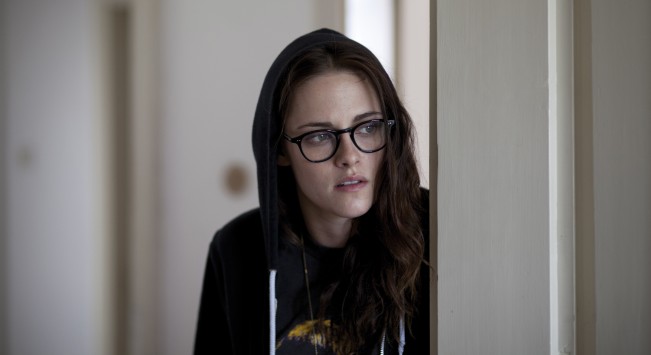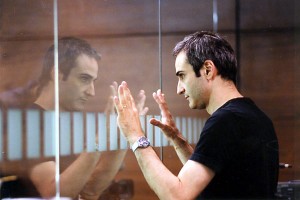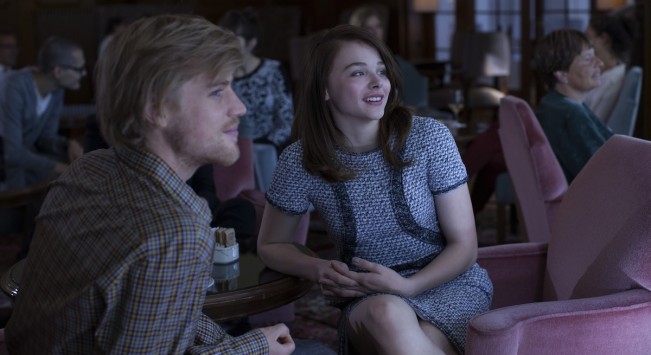By Jake Howell jake.howell@utoronto.ca
Countdown To Cannes: Olivier Assayas
 The sixteenth in a series of snapshots outlining the nineteen directors in the 67th Palme d’Or Competition.
The sixteenth in a series of snapshots outlining the nineteen directors in the 67th Palme d’Or Competition.
Background: French; born Paris, France 1955.
 Known for / style: Demonlover (2002), Clean (2004), Summer Hours (2008), Carlos (2010); accomplished film criticism in addition to screenwriting; a narrative filmography that includes a number of documentaries; a wide-ranging catalogue that ranges a spread of both genres and modes of storytelling; themes of youth and self-exploration; works that are steeped in autobiography; working with and writing for Juliette Binoche; notably strong female characters; collaborating, most recently, with cinematographer Yorick Le Saux.
Known for / style: Demonlover (2002), Clean (2004), Summer Hours (2008), Carlos (2010); accomplished film criticism in addition to screenwriting; a narrative filmography that includes a number of documentaries; a wide-ranging catalogue that ranges a spread of both genres and modes of storytelling; themes of youth and self-exploration; works that are steeped in autobiography; working with and writing for Juliette Binoche; notably strong female characters; collaborating, most recently, with cinematographer Yorick Le Saux.
Notable accolades: A major component of his career, Assayas’ screenwriting is formidable; his script for Something in the Air took home Venice’s Golden Osella in 2012. His miniseries Carlos also did very well, winning LAFCA’s Best Director and Best Foreign Film awards. Carlos was also a second place runner-up at the National Society of Film Critics awards (Best Director).
Previous Cannes appearances: Attending the Festival first as a journalist and later as a filmmaker, Assayas debuted his first film Laisse Inachevé a Tokyo in 1983. His screenwriting later brought him to the Festival with André Techine films Rendez-vous (1985) and Le Lieu du Crime; he joined the festival’s Un Certain Regard program with 1996’s Irma Vep. He was invited to the Competition in 2000 with Les Destinees Sentimentales, following up with 2002’s Demonlover and 2004’s Clean in the same slot. Assayas has also debuted Boarding Gate, Chacun son Cinéma (both 2007) and 2010’s Carlos out of Competition. 2014 sees his fourth Competition title.
Film he’s bringing to Cannes: Clouds of Sils Maria, one of the starriest debuts in the 2014 competition. The plot summary, from the distributor’s website: “At the peak of her international career, Maria Enders (Juliette Binoche) is asked to perform in a revival of the play that made her famous twenty years ago. But back then she played the role of Sigrid, an alluring young girl who disarms and eventually drives her boss Helena to suicide. Now she is being asked to step into the other role, that of the older Helena. She departs with her assistant (Kristen Stewart) to rehearse in Sils Maria; a remote region of the Alps. A young Hollywood starlet with a penchant for scandal (Chloë Grace Moretz) is to take on the role of Sigrid, and Maria finds herself on the other side of the mirror, face to face with an ambiguously charming woman who is, in essence, an unsettling reflection of herself.” Rounding out the cast are Lars Eidinger, Johnny Flynn, and Brady Corbet.
 Could it win the Palme? While Assayas is due for a major win at any festival, it’s foggy on whether or not Clouds of Sils Maria is one of the heaviest hitters at Cannes 2014. It’s star-studded, there’s no doubt about that; also positive is the film’s strong female characters, a truth that’s sure to play well to Jane Campion’s jury. Juliette Binoche, meanwhile, is an acting powerhouse on the Croisette, which may translate into a prize for her performance. That being said, the Competition is incredibly strong this year, and there are other films—on paper, of course—that seem more likely.
Could it win the Palme? While Assayas is due for a major win at any festival, it’s foggy on whether or not Clouds of Sils Maria is one of the heaviest hitters at Cannes 2014. It’s star-studded, there’s no doubt about that; also positive is the film’s strong female characters, a truth that’s sure to play well to Jane Campion’s jury. Juliette Binoche, meanwhile, is an acting powerhouse on the Croisette, which may translate into a prize for her performance. That being said, the Competition is incredibly strong this year, and there are other films—on paper, of course—that seem more likely.
Why you should care: “Technique is dangerous, that’s the way I’ve always seen it,” Assayas said in 2013 in an interview with Black Book. “I always try to break it.” Whatever cinematic skies Clouds of Sils Maria is hiding, it’s assuredly going to be worthy of a conversation. Stewart, in need of a refreshing role, may have something here with Assayas, who is known for his strong female protagonists. Binoche agrees, saying the following about the director at a recent Q&A: “When we were shooting [Clouds of Sils Maria], I was thinking: I’m just living my dream. [Assayas] is really daring, he’s been writing for women, he’s been beyond what I expected. It gives me so much satisfaction.”
Follow Jake Howell on Twitter
Previous Entries:














kristen stewart i love